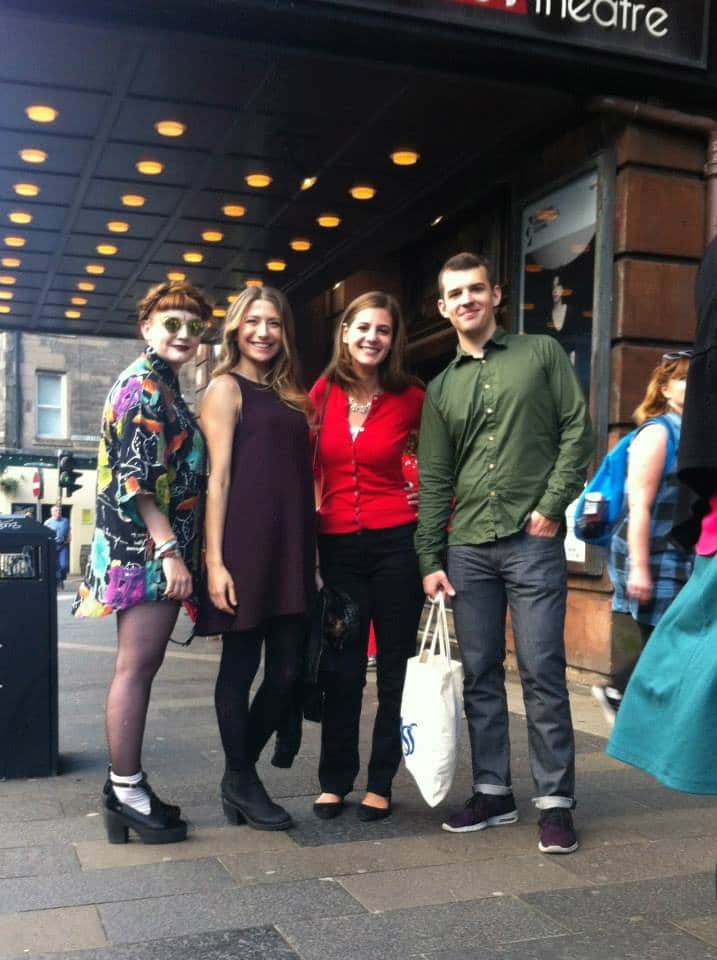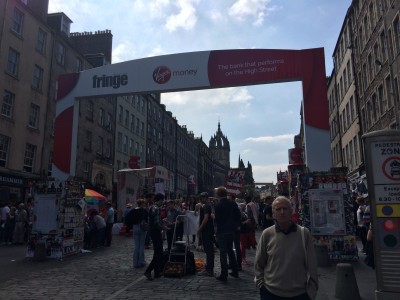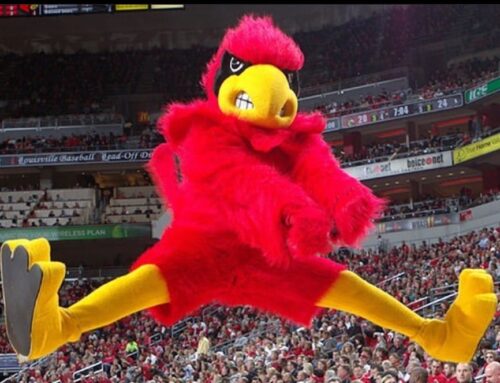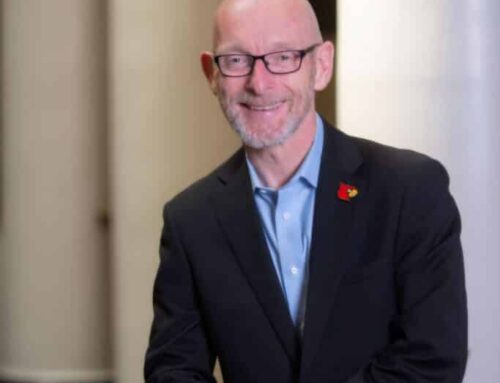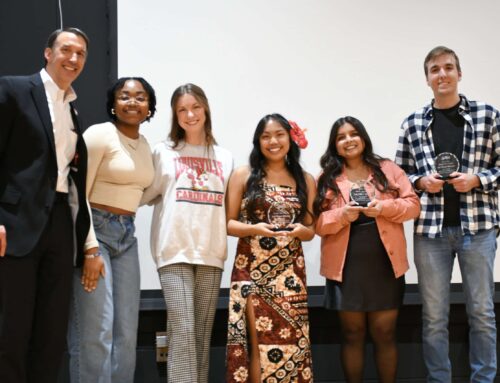By Adeline Wilson–
Edinburgh in August is, in a word, mad. But it was madness I was looking for when I signed up to study in Scotland’s capitol city during the Edinburgh Festival Fringe.
For three weeks every summer, Edinburgh is home to the largest arts festival in the world. In 2014 there were nearly 50,000 performances of over 3,000 different shows at the Fringe. The Festival has something for everyone: theatre, stand-up comedy, music, spoken word and exhibitions.
I chose to study contemporary literature and theatre at the University of Edinburgh this August so that I could be a part of this cultural phenomenon. My morning walk to the lecture hall was frequently interrupted by performers trying to drum up curiosity for their show. An actress in full costume and makeup once followed me for a block singing lines from Sweeney Todd.
The other students in my program came from all over the world to study and experience the Fringe. I have never been in such an international setting in my life. Surprisingly, this caused me to think a lot about how the students in my class–and the world as a whole–viewed my home.
Whether I was in a cab or introducing myself to classmates, my 30-second “who am I” speech always included some iconic Kentucky images—horse racing, bourbon and basketball—when I explained where I lived. Whenever we passed a KFC, I would be less than flattered when a classmate from Spain would nudge me and joke, “Look, Addie! You’re home!”
Of course, Kentucky is all of these things and much more, but putting the words together about what makes it a great place to live can be a challenge.
How is it that we simultaneously cling to and push against stereotypes about our identity? The students in my program came from all over the world, like Turkey, Germany, Egypt, Australia, Brazil and Malawi, and we all struggled with this question.
It is nearly impossible to authentically represent every aspect of your home in an international setting. People will always have misconceptions about my corner of the world, and I’m sure that I had preconceived ideas about their home countries as well.
After making friends with such a diverse group of students, I am convinced that the only way to solve this problem is to have fun together and ask lots of questions. The stereotypes fall to wayside once real relationships are formed.
Finally, if you have any desire to study abroad, it is possible. There are a number of scholarships available if you do some research and ask. I was sponsored to attend this program by the English-Speaking Union and the Office of National and International Scholarships here at U of L. The hardest part is deciding where in the world you want to go.

